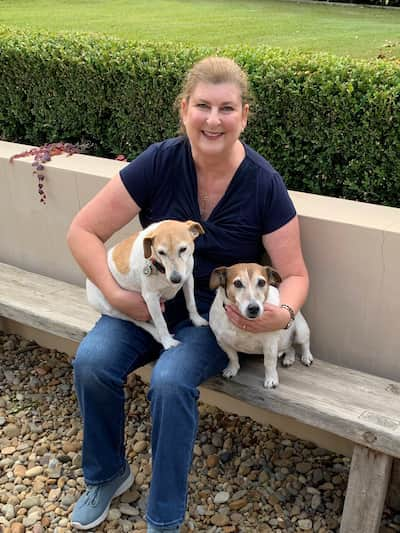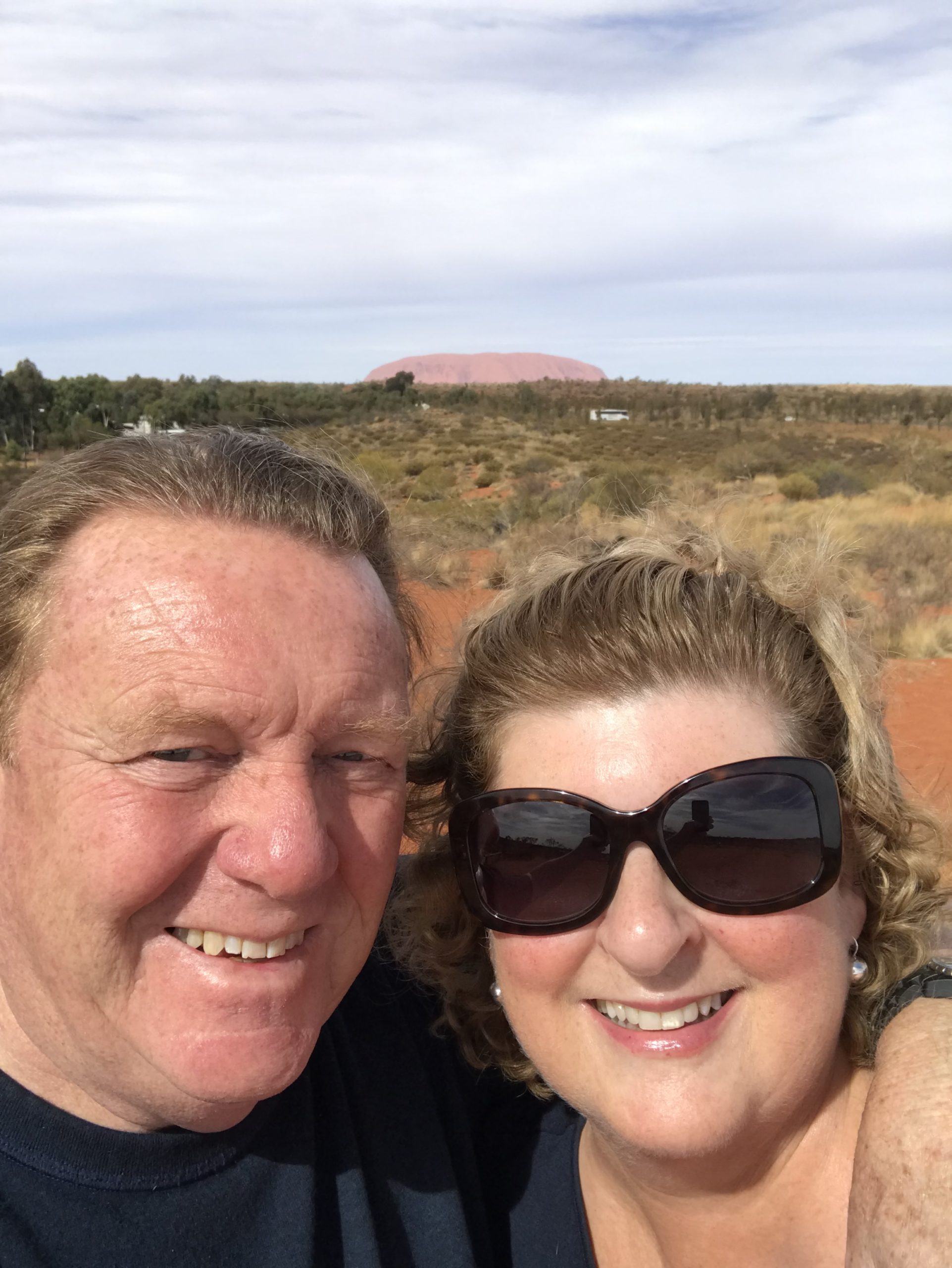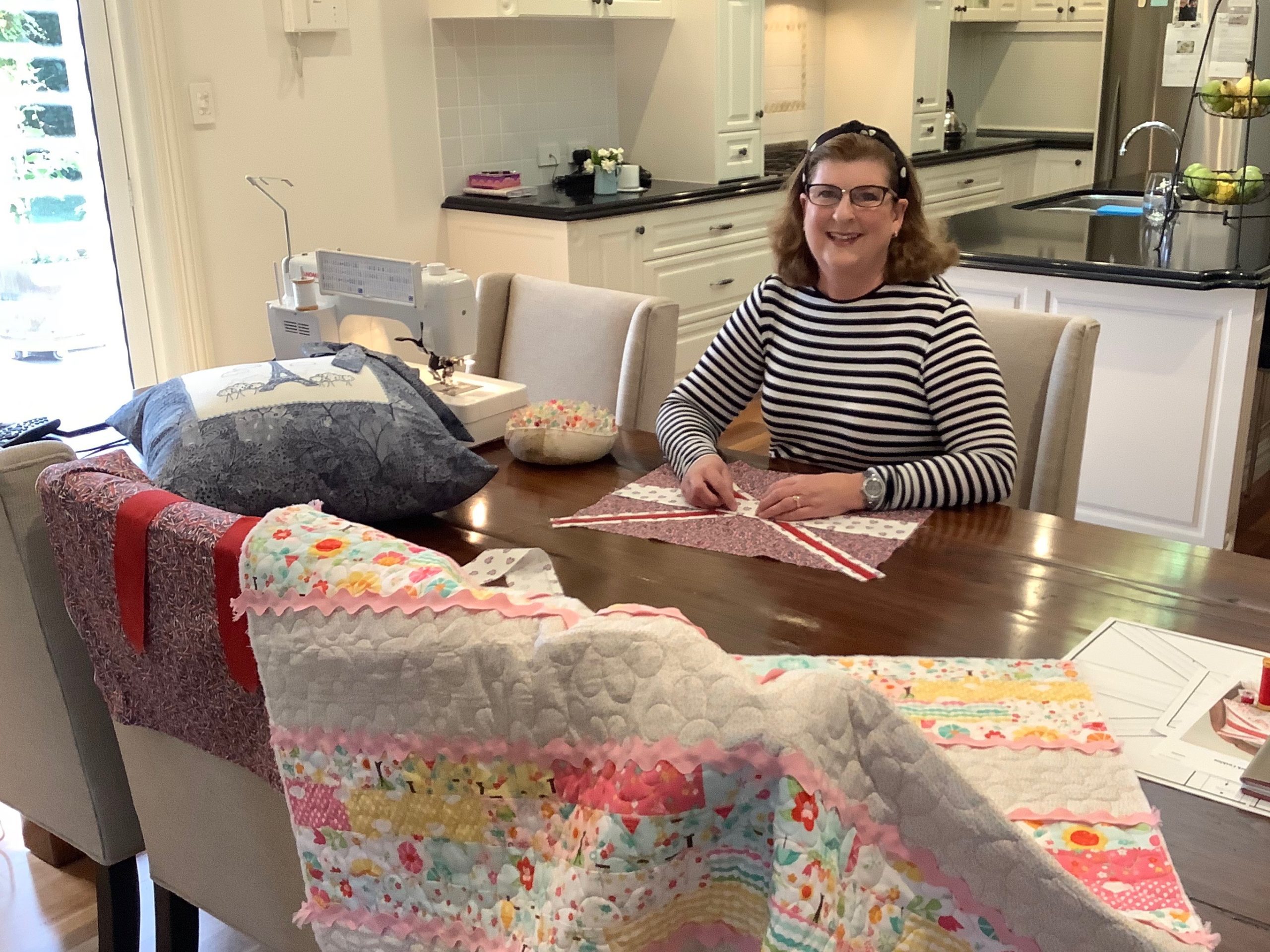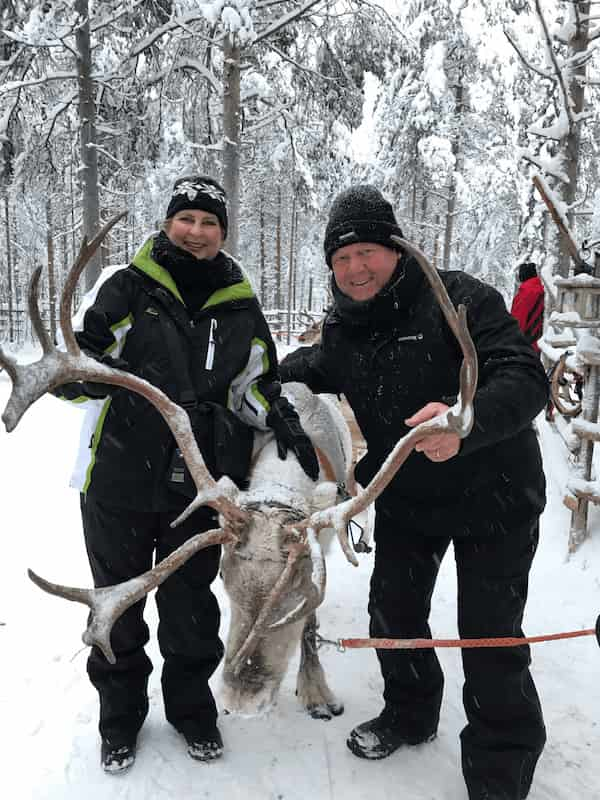Jane’s survived a second cancer diagnosis while on watch and wait
All Jane Blakeley knew about leukaemia – at the beginning, when she got the shock diagnosis of having a precursor to CLL – was that “people who have leukaemia die”.
“That was my understanding,” said Jane, 60, of Wilton, south west of Sydney.
And that’s why she didn’t tell anyone for a long time. She thought most people would think, ‘oh, God, you’re going to die’.

“I didn’t know leukaemia was a blood cancer and didn’t realise there were so many different types of leukaemia.
“And then the haematologist said, ‘if you’re going to get leukaemia, this is the one to get’.”
The call that changed everything
Jane’s cancer journey began in 2012, when she got a call from her GP one afternoon while babysitting. She’d had a full blood test to keep an eye on her cholesterol and blood sugars, etc.
“We need you to come in and talk to the doctor,” she was told, “we’ve picked up something in your bloods”.
“It was an absolute shock,” said Jane, who is married and has step children and grandchildren.
“So off I go. They said they’d been monitoring it [her B-cell count] for a while, and it had gone up enough to think it could go into CLL.
“From there it was off to the haematologist. I had monoclonal B-cell lymphocytosis*, a precursor to CLL.
“It was just monitored and eventually it crossed over to CLL in early-2013.”
Again, that was a shock for Jane, and equally for her husband, David.
“I had no symptoms, nothing. I’ve never had any symptoms. If it wasn’t for the blood tests, I would still not know about it probably, except for what else has happened.”

Coming to terms with having CLL and finding out more
“At first, it was really, really scary… you’re waiting for something to happen to you.
“In the early days, if I got an ache or a pain or was particularly tired, I’d think, is this because of the CLL? It took me a good few years to get my head round it.
“I contacted the Leukemia Foundation to try and find out a bit more, because I’d just Googled stuff, as you do.
“I must admit the Leukemia Foundation was unbelievable. The more information I got, the better I felt about the situation.”
“They sent me all sorts of information,” said Jane, and she’s saved all of it in a file, which includes back copies of CLL News.
“They got me involved with a support group, then I went to a conference they had, and then another blood cancer conference.
“Over the years I’ve kept going to the support group meetings,” said Jane, initially at Liverpool Hospital (Sydney) and now at Bowral, which is closer.
“I think they’re good. You get to know people.
“At first, it was a great help to hear other people who had CLL, their experiences. And now I’ve been going long enough that I can help other people.
“You learn from others. You pick up how they deal with things, and you can talk about how you deal with things.
“And the more people I met, the more information I found out, the happier I’ve been.
“Knowledge is power and the more knowledge I had – about the research being done, the breakthroughs and the success with treatment – the better I felt about it.
“By the time I might need treatment, there might be a cure.
“I was told… a third of people [with a CLL diagnosis] will need treatment straight away, a third will need treatment at some stage, and a third will never need treatment.”
Going from watch and worry to not worrying anymore
Seven years have passed, and Jane hasn’t had any treatment for CLL.
“It was diagnosed early and its progress is slow,” she said.
“My haematologist says… the way I’m going, its progress over the last seven years and looking at the markers in my blood, it will be a long, long time before I need treatment.”
So how does her CLL diagnosis affect Jane now?
“It doesn’t,” she said. “Not now.”
“At first, it was very hard to get my head around. But the more I found out, the more comfortable I felt.
“It used to be watch and worry, but I don’t worry about it anymore.
“I try to live more mindfully; doing things I’d like to do, rather than what I have to do. You realise that life is short.
“But I’ve had breast cancer as well, and that’s had a greater impact on me than the CLL diagnosis.”
Jane’s second cancer diagnosis
Two years ago, a mammogram detected breast cancer.
“That rocked me more than anything did, because that was immediate and needed to be dealt with straight away. Whereas with the CLL, I knew it was a long-term thing,” said Jane.
“I was diagnosed with breast cancer in late-January 2018. When I saw my haematologist the next month for my yearly check-up, I’d already had one operation.
“He said, ‘don’t worry about your CLL. You just do what you need to do to treat the breast cancer’, and he kept in contact with my oncologist.”
It’s 18 months since Jane finished her breast cancer treatment, which knocked her around, and it’s only been in the last couple of months that she’s felt herself again.
“It never quite leaves you because of ongoing medication, but I don’t live every day worrying about it,” said Jane.
“I just get on with things. I’m that sort of person.
“But I had trouble coming to terms with the breast cancer after it was all finished,” said Jane, who found herself waiting and wondering… what’s next?
“I had counselling for that, and that made a huge difference.”
The psychologist she saw treated people who’d had cancer.
“The aim was to try and focus on the good things and not on the ‘what might happen’.

Getting on with life and living with CLL
“Now I’m stuck at home, I love it,” said Jane about self-isolating during COVID-19.
“I get to do more of the things I want to do. I sew. That’s my happy place. And I meditate a lot and go for walks with my two Jack Russells [terriers].”
“I only see the haematologist once a year and he’s happy with progress so far. He’s always been very positive.
“He looks across all my bloods, says ‘this is a bit high, but that’s perfect, come back in another year and stay healthy’, and that’s about it.
“At the moment [during the COVID-19 pandemic] he says, ‘be careful to stay away from sick people’ because my immune system is still compromised.
“And I have to be proactive. If I get sick, I have to act on it straight away.
“His opinion is that there’s no need for any treatment at this time. And my understanding is that if they treat CLL too early, the side-effects are worse than the treatment.
“And having had chemotherapy, I can understand why they say that.”
Interestingly, the chemo Jane had for breast cancer also had a favourable effect on her CLL.
“It’s funny, the chemo actually knocked the CLL on its head,” said Jane.
“When I had to see my haematologist in March last year, he said there was no detection of CLL in my blood at all!”
“When I asked, does that mean I don’t have it anymore, he said, ‘no, but it’s not detectable in your blood at the moment’.
“But when I saw him in March this year, they could detect it again. It’s starting to creep up a bit.”
However, Jane says, “I’m in a good place with it now”.
“I have a wonderfully supportive and loving husband, and a great brother and sister who help put things into perspective. Extended family and close friends help as well.
“I try to stay positive, do things that I like doing, and try and be as healthy as I can.”
“I eat well, but I like red wine and sometimes drink more of that than I should. But at the end of the day, life’s short. I exercise and I’m an active person. I walk primarily, around where I live which is a beautiful semi-rural area.
“I’m lucky, we travel a lot. We’ve got a motorhome and travel overseas a fair bit. I always appreciate being able to travel,” said Jane.
But this year, their Easter trip to the South Coast, and the holiday they planned to Alaska and Canada in July, were both cancelled.
Jane’s advice to others on watch and wait
“For anyone at a similar stage to me, I’ve said, go to the Leukemia Foundation because they’re so good at providing information, try and look after yourself to the best of your ability, and eat as well as you can. Try to stay healthy, in other words.
“I’ve found by concentrating on things I enjoy, there’s not as much time in your head for the other stuff.
“The important thing is, you have to get on with life.”
* Monoclonal B-cell lymphocytosis (MBL) is an asymptomatic precursor condition for chronic lymphocytic leukemia (CLL). It is defined by the presence of small clones of aberrant B-cells in the peripheral blood, with a total B-cell count below the threshold for diagnosis of CLL.
Last updated on March 25th, 2021
Developed by the Leukaemia Foundation in consultation with people living with a blood cancer, Leukaemia Foundation support staff, haematology nursing staff and/or Australian clinical haematologists. This content is provided for information purposes only and we urge you to always seek advice from a registered health care professional for diagnosis, treatment and answers to your medical questions, including the suitability of a particular therapy, service, product or treatment in your circumstances. The Leukaemia Foundation shall not bear any liability for any person relying on the materials contained on this website.